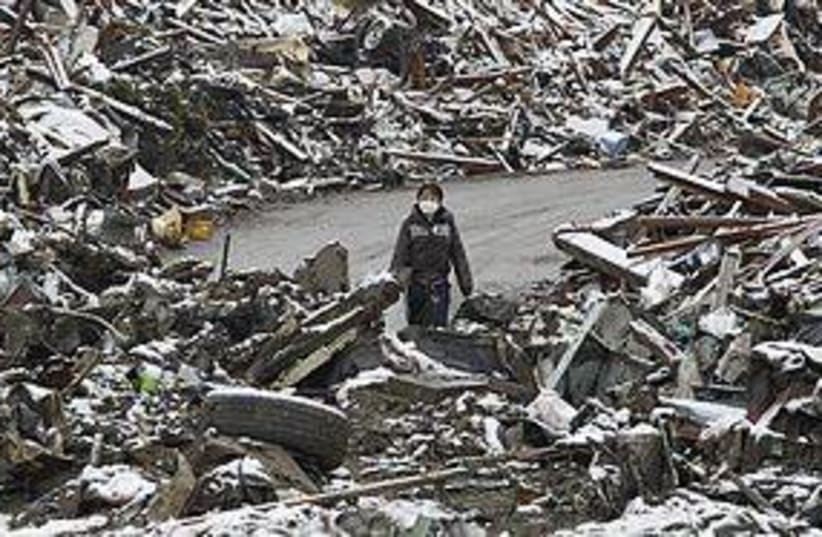The meteorology agency said temperatures could drop as low as -2 Celsius (28 Fahrenheit) in Sendai on Wednesday. Scores of people queued up in the snow for drinking water that arrived by truck. Relief workers rationed it at three litres a person."We hope that lasts long enough," a grim-faced volunteer said as he helped dole out the water.Broadcaster NHK offered tips on how to stay warm -- wrap your trunk in newspaper and cling film -- and how to boil water using empty food cans and candles.Rescuers said their main concern was for the elderly, who make up the majority of the scores of people packed into shelters."They are having a very tough time of it," said Fuller."They need regular medication and proper care. A lot of the problems, though, are psychological, people are so stressed out. They are getting three meals a day but probably more food needs to come."In addition to their physical well-being, many elderly people at shelters were traumatised by what they had been through, and just sat huddled on blankets, waiting, but not sure for what."Right after the earthquake, I was told to evacuate as soon as possible. I couldn't bring anything but myself," said silver-haired Kiyoko Abe at a shelter in Ishimomaki, Miyagi prefecture.Her husband sat smiling beside her, occasionally wiping away tears.
Snow piles more misery on Japan's devastated northeast
Inclement weather hinders rescue workers and adds woes to the residents who remained in the area after an earthquake and tsunami.

The meteorology agency said temperatures could drop as low as -2 Celsius (28 Fahrenheit) in Sendai on Wednesday. Scores of people queued up in the snow for drinking water that arrived by truck. Relief workers rationed it at three litres a person."We hope that lasts long enough," a grim-faced volunteer said as he helped dole out the water.Broadcaster NHK offered tips on how to stay warm -- wrap your trunk in newspaper and cling film -- and how to boil water using empty food cans and candles.Rescuers said their main concern was for the elderly, who make up the majority of the scores of people packed into shelters."They are having a very tough time of it," said Fuller."They need regular medication and proper care. A lot of the problems, though, are psychological, people are so stressed out. They are getting three meals a day but probably more food needs to come."In addition to their physical well-being, many elderly people at shelters were traumatised by what they had been through, and just sat huddled on blankets, waiting, but not sure for what."Right after the earthquake, I was told to evacuate as soon as possible. I couldn't bring anything but myself," said silver-haired Kiyoko Abe at a shelter in Ishimomaki, Miyagi prefecture.Her husband sat smiling beside her, occasionally wiping away tears.